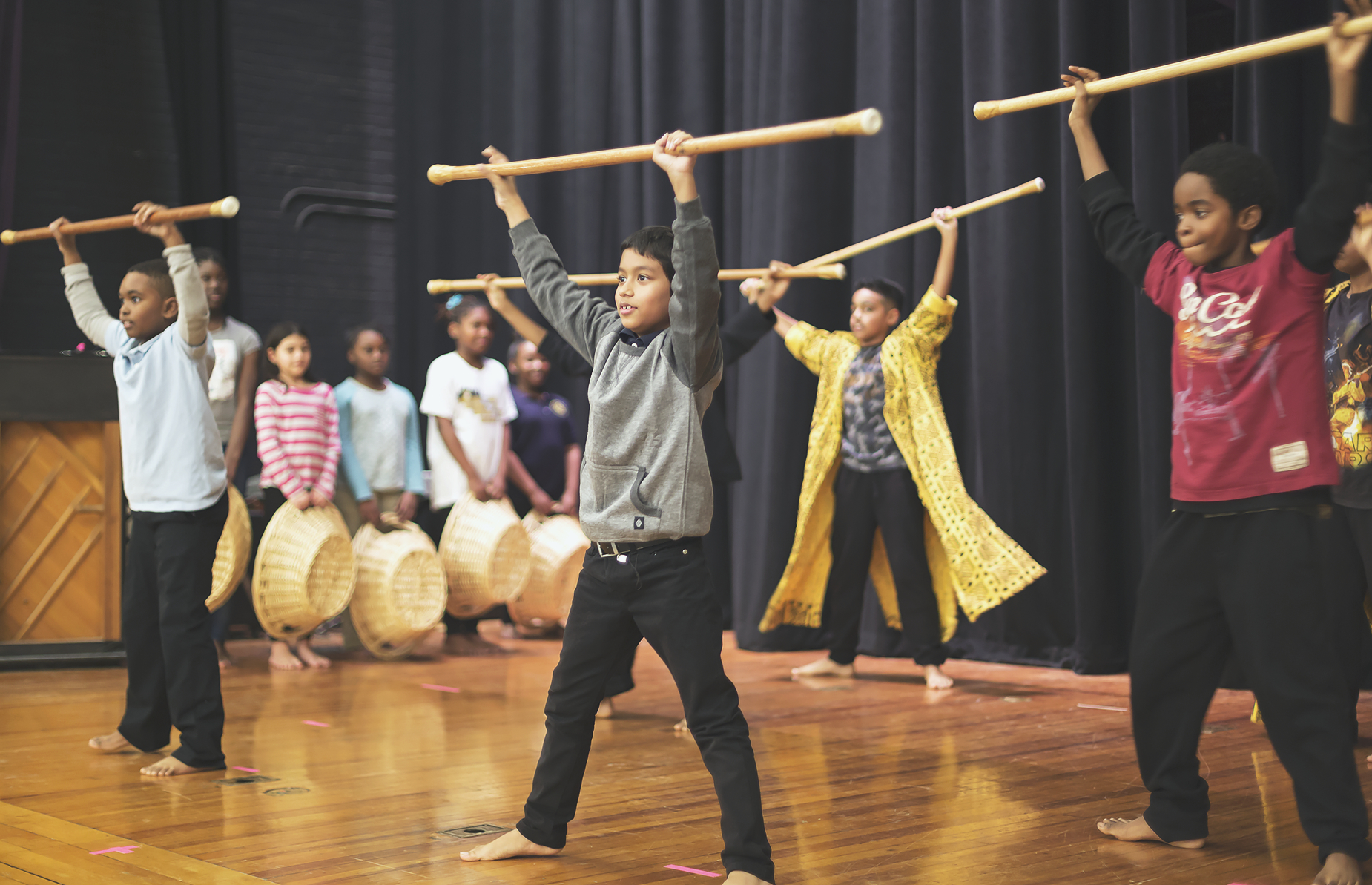
AS LEADERS OF statewide and regional organizations dedicated to increasing access to the arts, culture, and humanities, we are fortunate to advocate for the power of culture. We revel in the work of bold theater companies and groundbreaking museum exhibits, witness children build confidence and imagination through local arts programs, and applaud the relentless efforts of the cultural sector to improve accessibility for every resident.
Our jobs often find us celebrating the successes that unfold in communities that embrace the arts and the humanities. Today, however, we must sound the alarm. In its first 100 days, the Trump administration took steps that represent a clear and present danger to the cultural vitality of the nation and, we believe, to our democracy. We call on the people of New England to respond proactively to these threats.
From executive orders to muzzle free speech to the elimination of jobs and funding, the aggressive attacks on the National Endowment for the Arts, the National Endowment for the Humanities, and the Institute of Museum and Library Services will impact communities in every state. Efforts to radically alter the missions of the Kennedy Center and the Library of Congress signal a willingness to fundamentally change how we create, tell, and share the stories of the American experiment.
We must stand up for these people and organizations. Our economic competitiveness, our educational excellence, and our role as a beacon of equality require us to protect and preserve our cultural sector.
Every resident can play a role in this defining moment. While we understand that this fight will require years of shared effort, we see immediate possibilities in several areas.
We call on state and local government to protect our public libraries, parks, museums, and historic sites. These spaces serve as common ground for every resident in a time of division and misinformation.
They face a twofold threat from the federal government’s actions. First, the cuts to the federal agencies will create increased scarcity, leading to a reduction in services. Second, executive orders aimed at whitewashing our history apply pressure to the people operating these public spaces. As democracy is pushed to the brink, we cannot sacrifice the very places dedicated to ensuring a free society. State and local officials must support open access and the truth.
We ask private philanthropy to increase its support for the cultural sector during this critical period. We know that the cascading crises caused by this administration increase demand for every sector. Along with its $29.7 billion economic impact in Massachusetts alone, the cultural sector generates inspiration, helps to solve problems, and increases knowledge for residents in every community.
Our artists and organizations collaborate with sectors including health and human services, education, and climate. As we seek to combat fear and intolerance provoked by the federal government’s actions, philanthropy can ensure that children still learn to dance, that festivals still bring people together, and that the voices, songs, and visions of our artists continue to uplift us in this dark time.
We call on public and private supporters to honor the history of New England by celebrating our right to courageous dissent. We must resist the urge to sanitize artistic expression. The federal government’s efforts to intimidate everyone from theater companies to historians to elementary school teachers cannot be rewarded by the hurried erasure of our values.
We must refuse to sideline the voices of LGBTQ+ communities and people of color. Let our stages and concert halls remain safe places for every resident. Instead of revisiting tired tropes of Americana, we must continue to embrace artwork and scholarship that challenges us. We must serve as a refuge for creatives whose bodies and bodies of work do not fit into the gardens of heroes propped up by this administration.
As leaders, we know that we, too, must deepen our commitments. In our advocacy work, we will not bend in our demands for public funding that is distributed equitably. As funders, we will strive to find more resources so that we can respond swiftly during this emergency. As membership organizations, we will find ways to bring more people into our movement and give them the tools and care necessary to navigate these dangerous waters. Finally, we believe that solidarity is tyranny’s kryptonite. We commit to working collectively to ensure a united front in this struggle.
Despite the damage inflicted in recent weeks, we are awash in hope. We witness firsthand the critical role that cultural organizations play in making our region a great place to live and create.
Now more than ever, we believe that the arts and humanities are essential to building a new pathway for the nation. In this perilous moment, the fearless vision of our artists, historians, and educators can define our future.
Michael Bobbitt is executive director of the Mass Cultural Council. Brian Boyles is executive director of Mass Humanities. Kayla Coleman is executive director of the New England Museum Association. Emily Ruddock is executive director of MASSCreative.
